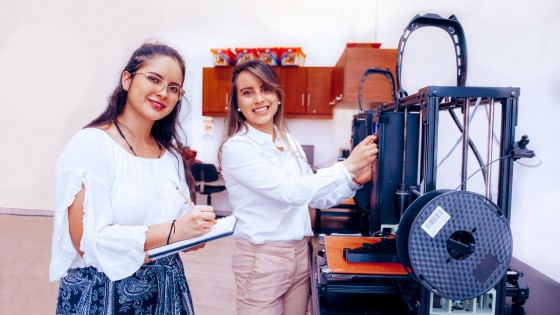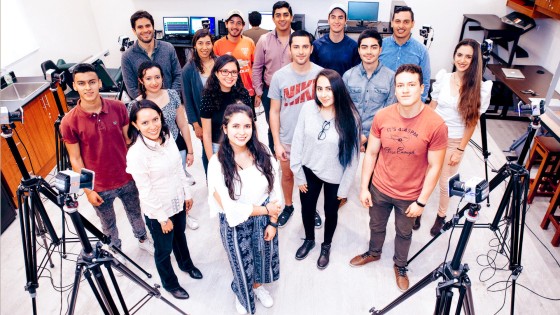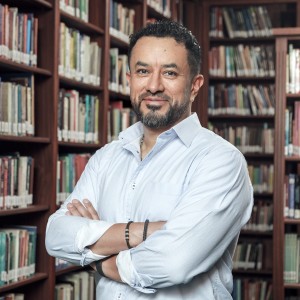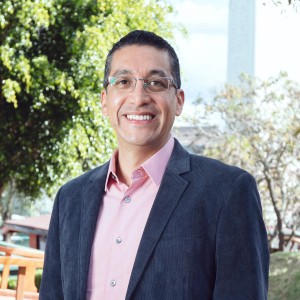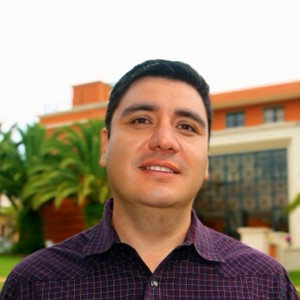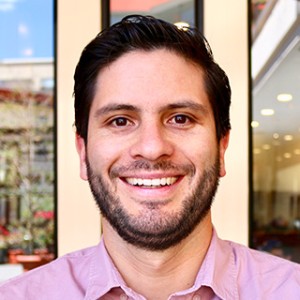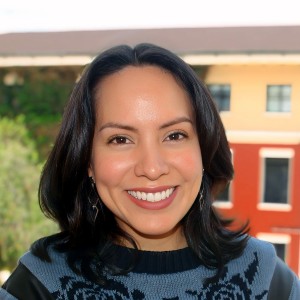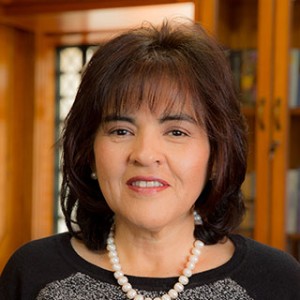Industrial Engineering
"We develop efficient solutions for optimization and continuous improvement"
Industrial Engineering
The Industrial Engineering program focuses on the continuous optimization and improvement of processes as well as integrated systems of people, materials, information, and equipment. Different tools, methodologies, and technological applications are studied in order to increase quality and productivity levels of organizations. Additionally, analysis and implementation of proposals and effective strategies are addressed within the program.
Industrial Engineers are professionals trained to generate competitiveness, sustained by quality and productivity. They establish a direct connection between operations and management areas. They motivate and enhance the capabilities of human talent, thus allowing for contribution in any manufacturing or service organization. The USFQ Industrial Engineering degree is accredited by the ABET Engineering Accreditation Commission.
Based on the Liberal Arts philosophy offered at USFQ, the Industrial Engineering degree is designed for students to take courses in the different personal interest areas while being trained in technical tools. During their first semesters, students take classes that are fundamental for an engineer such as calculus, physics, and chemistry, but also take general core courses that expand their learning horizons. As they advance in their studies, students delve into subjects related to the various areas of Industrial Engineering such as operations, research and optimization, supply chain and logistics, quality engineering and applied statistics, ergonomics, industrial safety and human factors, engineering management, production systems, and manufacturing engineering.
International Accreditation
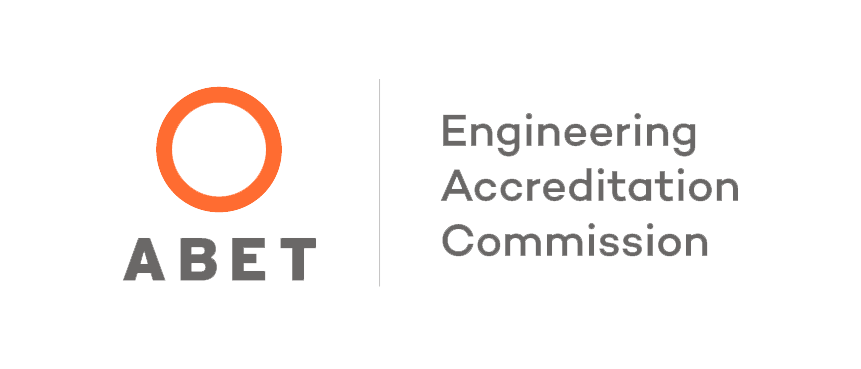
The Industrial Engineering program is accredited since 2018 by the Engineering Accreditation Commission(s) of ABET, https://www.abet.org, under the General Criteria and the Industrial Engineering and Similarly Named Engineering Programs Criteria.
Advantages
Why does accreditation matter?
Professors of the Industrial Engineering program are professionals with solid academic training and ample work experience. All of them have extensive studies in their fields of expertise, locally and abroad.
The program's plan of study is designed to form leading professionals with an international vision and academic rigor, promoting free, creative and innovative professionals, with a broad business culture, and who will act with social responsibility in different industry fields.
A significant percentage of Industrial Engineering students participate in international academic exchange programs and internships through agreements that USFQ maintains with educational institutions and companies in several countries, both in service and manufacturing. Examples include the University of Illinois, Virginia Tech, Oregon State University, Purdue University, among others.
USFQ has a student chapter of the Institute of Industrial Engineers IISE (#734), the world's most recognized professional society in the field of Industrial Engineering. The chapter is managed by the students themselves, with the guidance of a mentor professor, where several academic, professional and social activities are executed with the objective of having Industrial Engineering students promote the career, work as a team and create an internal support network. Due to its achievements, the IISE International, based in the USA, granted the "Gold Award" recognition to the chapter from 2016 to 2024, the last 9 consecutive years.
Students of Industrial Engineering have the opportunity to participate in research and consulting projects carried out by professors of the program, through local and international inter-institutional agreements.
Students have presented and won multiple awards at national and international conferences, the most recent being: Three students, along with their faculty mentor, won the Best Regular Paper award at the IEE International Conference on Pattern Recognition Systems 2023. Three students' senior projects were presented at the 12th International Symposium on Security and Digital Forensics. Three students' senior projects were presented at the Applied Ergonomics 2023 Conference. Three students' senior projects were selected for poster presentation at the IEA International Ergonomics Association Conference 2024.
USFQ is part of the network of academic allies of the Latin American Center for Logistics Innovation -CLI, member for Latin America of the MIT SCALE (Supply Chain and Logistics Excellence) network.
professors of the Industrial Engineering career, in order to carry out, together with the students, research and consulting in the following areas: Data Analytics and Machine Learning, Quality and Productivity, Logistics and Supply Chain, Human Factors and Ergonomics, Innovation in Science and Engineering Education (STEM).
Industrial Engineering students have access to scholarships for professional certifications offered by USFQ, such as a certification in Six Sigma Green Belt and Black Belt.
Occupational field
- Industrial Engineering graduates have the ability to analyze and implement strategies and solutions to increase the quality and productivity levels of organizations.
- Industrial Engineers are the direct connection between operational and management areas; they motivate and enhance the capabilities of human talent to achieve efficiency.
- USFQ's Industrial Engineering graduates are highly valued. Their obtained degree and experience allow them to work in practically any industry of their interest, both in manufacturing and services, in roles such as: optimization of operations and supply chains, planning and design of industrial plants, implementation of quality systems, optimization of organizational and manufacturing processes, consulting and execution of continuous improvement plans, project management, among many others.
Testimonials
Student Testimonials:
“In my experience, the Industrial Engineering career at USFQ goes beyond classroom teaching: it focuses on providing students with a high quality and unique experience. Without a doubt, it is a door to a world of opportunities. It was thanks to the unconditional support of the professors that I managed to study my fourth year of engineering at Oregon State University, in addition to achieving first place in the IISE global scientific devices contest. Currently, I am working for Kardex Group in the area of business analysis in Zurich, Switzerland. It is the best decision I have ever made.”
- Dominique Almendariz, Industrial Engineering Class of 2018 -
"USFQ is the Ecuadorian university with the most experience in Industrial Engineering and is continuously innovating. Furthermore, as an institution, it includes the student as an important part of the entity, supporting them and taking advantage of their capabilities and aptitudes. It also offers great opportunities and resources in terms of scholarships, in recognition of student effort and performance. "
- Sebastián Mena, Industrial Engineering Class of 2011 -
"Obtaining a university degree is an important decision not only because you choose the activity you plan on dedicating a large part of your time to, but also because you decide the place and the people that will surround you during this stage of growth. With this in mind, I chose USFQ because it gave me the opportunity to learn in a dynamic environment, cultivate great friendships, and learn from excellent professionals. I chose the Industrial Engineering program because it allowed me to learn the most relevant topics in the industry, its organization, management, and processes. The comprehensive vision of Industrial Engineering allows you to learn about manufacturing and services, and opens the door to choose the path of specialization you prefer."
- Giovannina Zapata, Industrial Engineering Class of 2010 -
"I always wanted to study at a university that would allow me to complement my interest in numbers and the Liberal Arts. USFQ not only gave me that opportunity, but also awarded me a scholarship to fulfill that wish. During my undergraduate studies, the General College helped me develop a global vision of things and an incredible desire to explore the arts, sciences, and
- Rubén Proaño, graduate of Industrial Engineering 1998 -
Our Teachers' Comments:
"To evolve and grow academically through contact with the students and to make them interested in carrying out research on various topics, which involve the industry, the environment, and the university, is a challenge that is taken on on a daily basis and helps to train industrial engineers who, upon graduation, interact in the environment with confidence that what they are doing they learned or can learn."
- Ximena Córdova, Ph.D. -
"I graduated as a Mechanical Engineer, and although this branch of engineering is very interesting, in the professional field I realized that the component of knowledge in Industrial Engineering is fundamental for all professionals, regardless of the area in which they are focused. So, I decided to specialize in Industrial Engineering to finally find my way. From my perspective, Industrial Engineering connects the operational part of any company in any industry with the managerial part and becomes essential in decision making. Even when the Industrial Engineer looks for continuous improvement of any existing process, he is capable of designing a complete system that functions efficiently. I had the opportunity to work for companies dedicated to the construction and distribution of pharmaceutical products, in which I was able to successfully apply Industrial Engineering knowledge. I also experimented in the academic area and I can assure you that Industrial Engineering has multiple greatly relevant areas of knowledge development. Today, as a professor at USFQ, I have the opportunity to openly transmit and expand experiences and knowledge with students and teachers in an environment of trust and respect. "
- Galo Mosquera, Professor -
International Accreditation
Documentation
Educational Objectives
The Industrial Engineering career is designed with the objective that our graduates will be able to achieve the following professional achievements within 3-5 years after graduation:
- Be able to optimize organizational systems by applying industrial engineering tools to achieve efficient and effective solutions.
- Be able to add value to organizations through effective communication and teamwork skills; showing leadership and innovation framed by solid ethical and social values.
- Be able to value the importance of the continuous acquisition of knowledge and skills to adapt to business needs and technological advances.
Student Outcomes
The Industrial Engineering course is designed to enable our students to acquire the following skills and knowledge
- Engineering Problems: Identify, formulate and solve complex engineering problems by applying principles of mathematics, science and engineering.
- Systems Design: Apply engineering design/techniques to produce solutions that meet specific needs taking into account public health, safety and welfare, as well as global, cultural, social, environmental and economic factors.
- Effective Communication: Communicate effectively with a diverse range of audiences.
- Accountability: Recognize ethical and professional responsibilities and make informed judgments that consider the impact of engineering solutions in global, economic, environmental, and social contexts.
- Teamwork: Work as part of a team, whose members provide leadership, create a collaborative and inclusive environment, set goals, plan tasks and meet objectives.
- Experimentation & Data Analysis: Design and conduct experiments, analyze and interpret data, and draw conclusions.
- Continuous Learning: Acquire and apply new knowledge using appropriate learning strategies.
Academic Faculty

